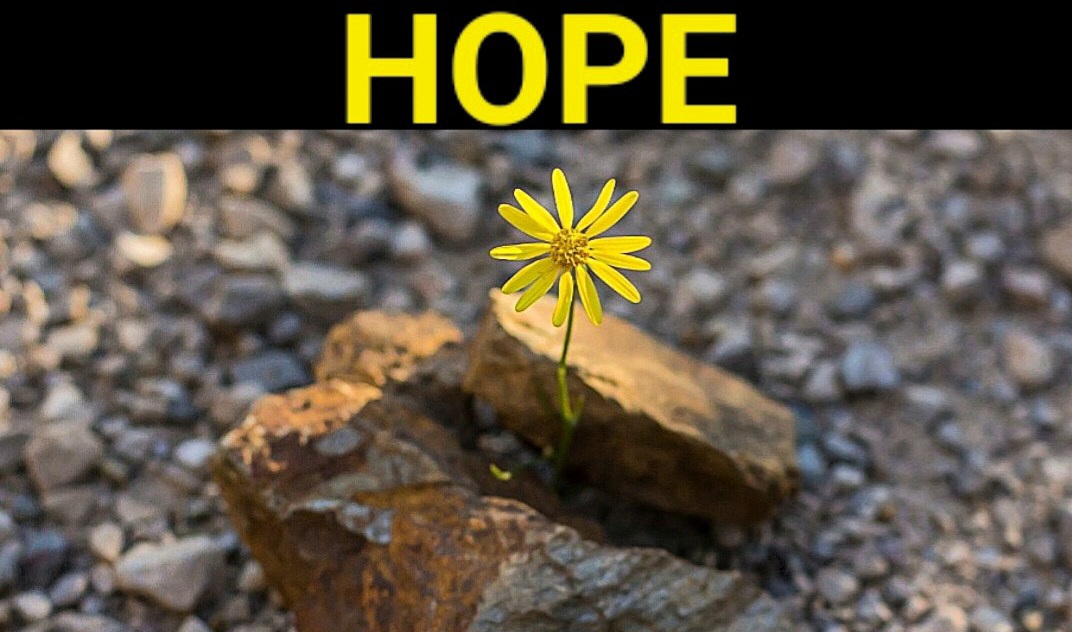I have been reviewing various readers’ comments recently. Many focus on their spiritual journeys, while others offer an honest examination of real-life transformational questions. The following questions from one reader include:
- Is the act of providing hope the primary portion of life’s meaningful relationships?
- Does hope have the capacity to transform isolation into connectiveness?
- Can hope awaken the intimate personalities that are required for a sincere collaborative presence?
- Does it relieve us from unhelpful cinematic life events and invite stability?
Truthfully, I can identify with many of life’s uncertainties. A good part of my life has been spent relating to the questions my reader friend has shared.
Several years ago, I had the opportunity to make friends with a Buddhist abbot, named Khenchen, in Central Pennsylvania. While walking the monastery grounds, our talks covered a wide variety of topics on life. He was a true believer in the Buddhist concept of “Universal Hope.” This perception is based on the desire of an outcome that could be significantly different from what might happen.
Khenchen became mysteriously preoccupied whenever he spoke about someone endlessly focusing on a life dedicated to wanting a lifetime of promise. Regrettably, he believed that a continual pattern to desire change was a pathway destined to create an unsettling in the background of life. He imagined this type of life position was certain to hide in the shadows; whereupon, relational cravings would not be completely fulfilled. His version of ordinary hope was simply an expression of fear and a form of widespread personal suffering.
In reflection, I understood that Khenchen’s view of “Universal Hope” was unusual. Many would not take the time to consider it. “Universal Hope” is the personal process of accepting an alternative point of view. It is not seeing things unrealistically, but rather appreciating things as they are. This includes the truths of how we are often puzzled by the unrealistic effects hope has on our communal relationships.
“Universal Hope” creates an environment where ordinary urgings can be made. New opportunities of understanding ourselves are established. We realize that what we crave might not occur. Out of the blue, we have secured a spaciousness of uncertainty. These unique openings create balances to how we approach life’s personal expectations.
Some of us have flashes of constriction when we think despairingly. We become paralyzed by the belief that there is nothing to truly hope for. Our environmental and communal positions are beyond repair or livable. An overwhelming weight submerges where there is no way out from under the rocks that we have accumulated. There is no power to change relational conditions; no reason to take hopeful actions.
Positioning hope as a primary portion of our most meaningful relationships does not mean we deny the realities previously mentioned. We are required to face them; to address the reality of our interpersonal connectiveness. In doing so, we remember that our values can be influenced by a collaborative presence. Kenchen often remarked that within our most difficult relationships, we should not find fault and remove hope. It would be more constructive to remove our desire to flee from what is believed to be unpleasant.
Khenchen’s view of “Universal Hope” allows me to understand that what we fancy in life can be formed as an interpersonal and intimate promise. It is different from having optimism. It is not the conviction that something will turn out well, but the assurance that something should make sense, regardless of how it turns out. We can never know the precise outcome of what we desire is, yet we can trust that there will be movement.
A multitude of answers await my one reader friend. Most rest in not only how he applies his personal values but with the transfer of his ambitions to all his consequential relationships. Were there underlying reasons within his requests? Certainly, the argument that to live without hope is to cease to live at all could be made. My Buddhist friend was famous for reminding me that the apathy I was carrying was not an enlightened path.
We are all called to live a life with many relational possibilities, knowing fully that impermanence prevails. If true, then it is our responsibility to do just one thing. Just show up.


 Bud Megargee is a former senior behavioral healthcare executive; a Washington, DC., healthcare lobbyist; and an independently published, best-selling and award-winning author. He began writing after exploring Eastern philosophy and alternative medicine techniques in the professional treatment of emotional challenges at a Taiwanese Buddhist monastery.
Bud Megargee is a former senior behavioral healthcare executive; a Washington, DC., healthcare lobbyist; and an independently published, best-selling and award-winning author. He began writing after exploring Eastern philosophy and alternative medicine techniques in the professional treatment of emotional challenges at a Taiwanese Buddhist monastery.